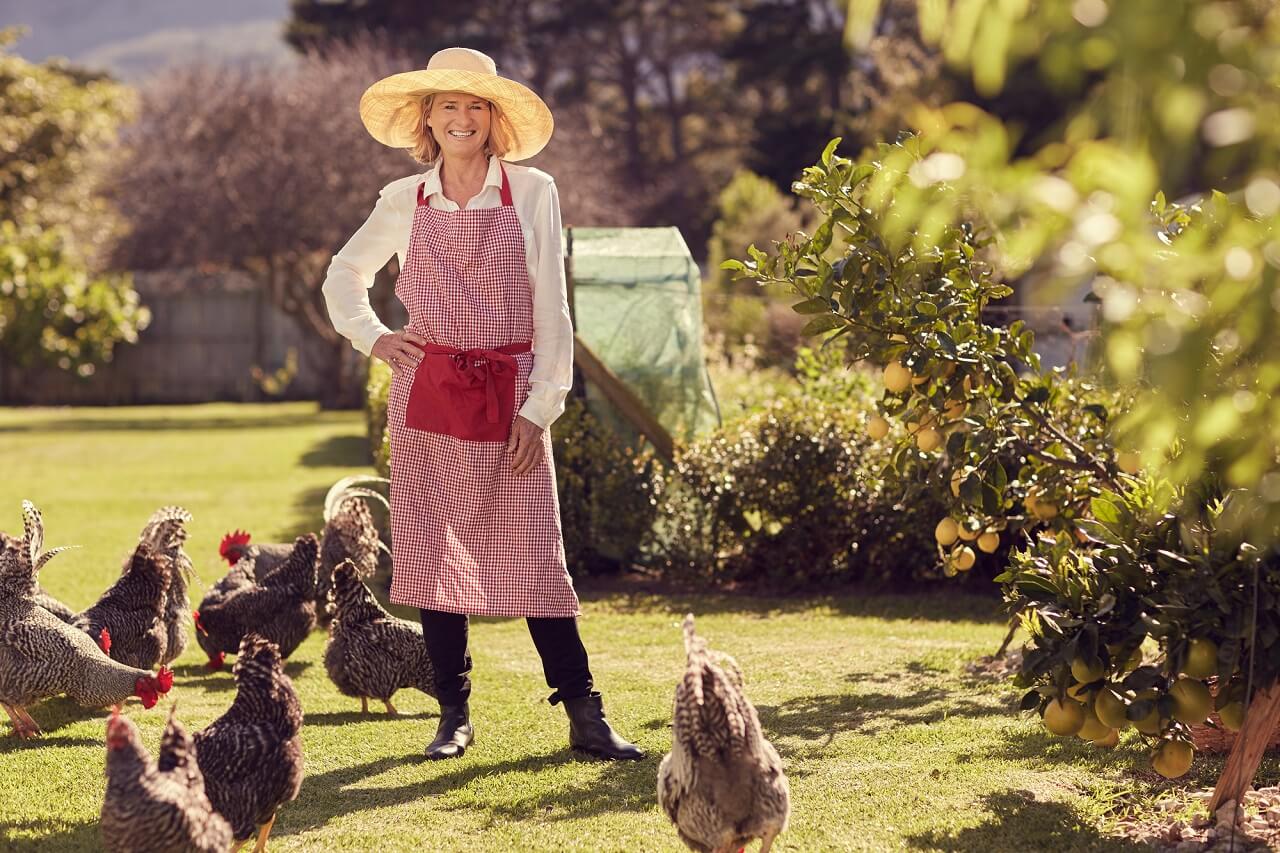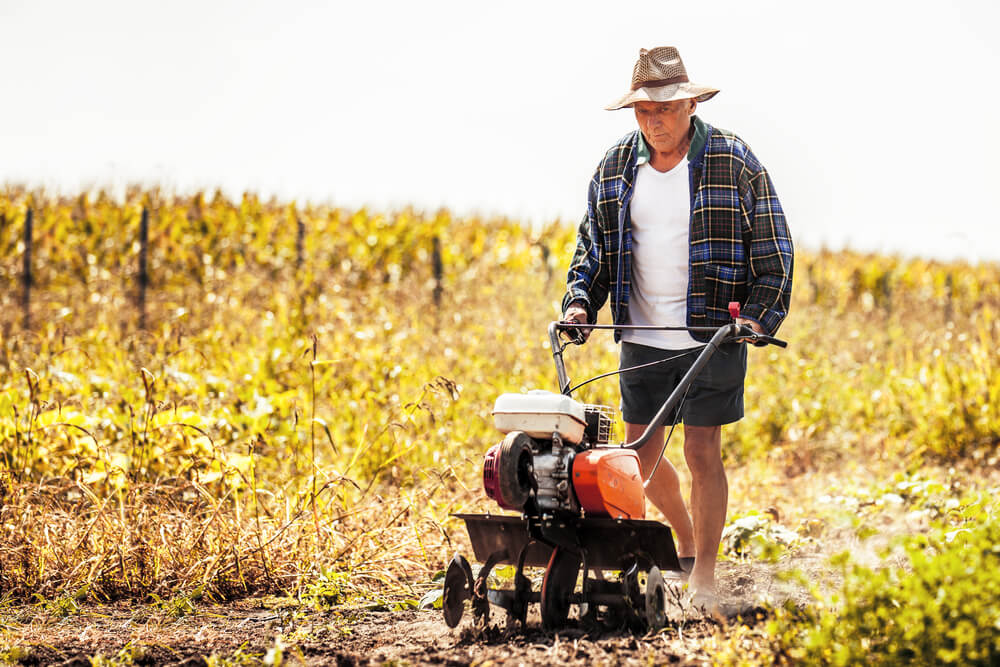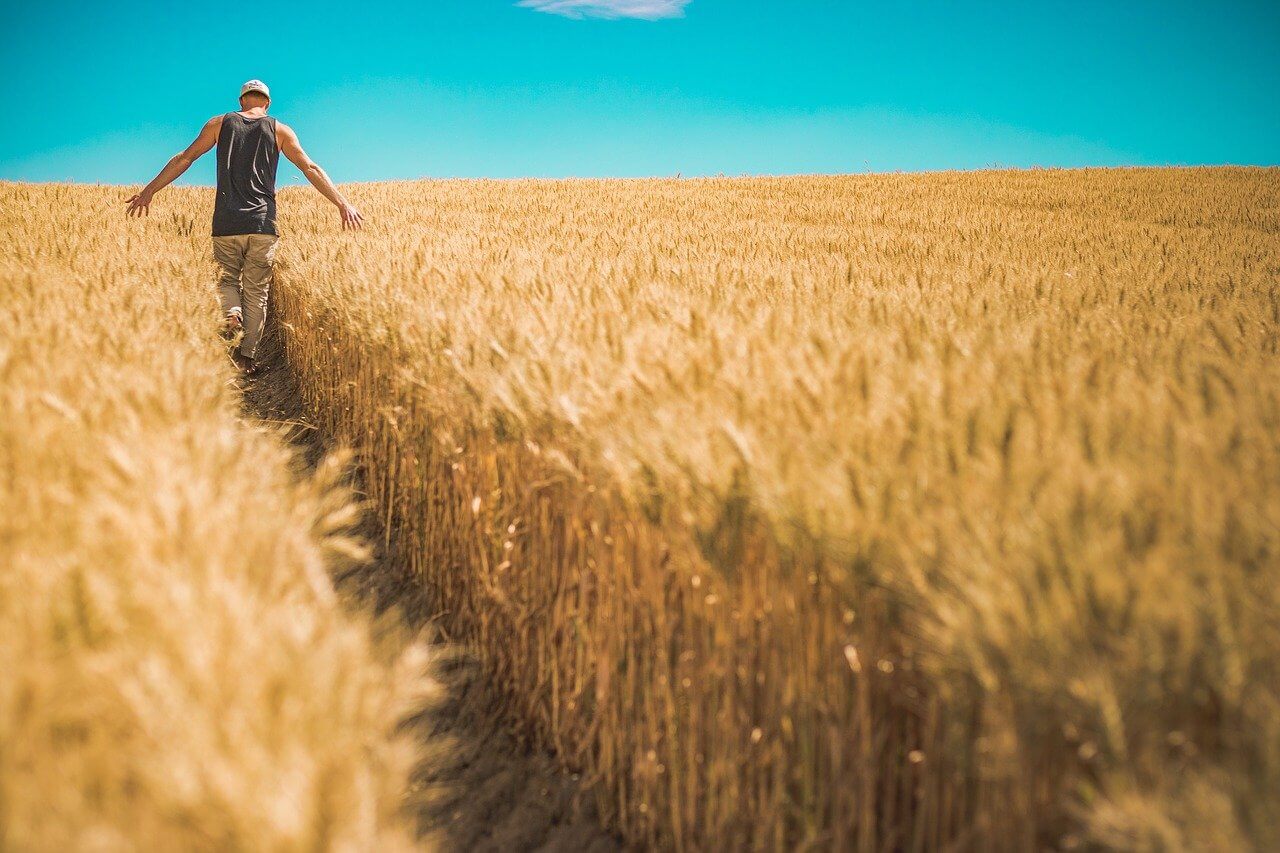If you’ve wondered “how do I become a farmer with no experience?” or “can I really become a farmer at 40 or beyond?” Then the answer is yes, you absolutely can! Read on to find out how.
What You'll Learn Today
Becoming a Farmer at 40 (Or 50)

At some point most of us dream about leaving our tedious 9 to 5 jobs, becoming our own boss, and living a more wholesome and fulfilling life. The truth is you can, it’s simply a matter of finding what’s right for you and your particular set of circumstances.
There’s no denying that whatever type of farming you choose, at any age, is going to take an element of hard work, dedication, patience, and skill, but so does everything in life that’s worth doing.
In today’s economy, it’s all about thinking outside of the box. Finding out if there are any agricultural shortfalls in your area, seeing what’s in demand, and then working out how to bring that to the market within your limitations.
Farming offers such a wide range of opportunities, that the possibilities are only limited by your own imagination.
The Average Age of a Farmer

The average age of a farmer in the United States may surprise you, it isn’t 30, or even 40, it’s 57 years old. Admittedly, most began farming in their youth, by following their family’s traditions, but this is no longer happening, and getting enough young blood into farming today is a growing concern.
The reason younger generations aren’t choosing farming as a career isn’t that they’re not interested. It has far more to do with high start-up costs and generally negative perceptions that surround traditional farming, such as long hours and low pay.
Far from being purely an issue in the United States, the same trend is happening globally. Luckily, another interesting trend is also happening, as a growing number of people from an older generation take up farming for the first time.
Despite the challenges, many older people are drawn to working on the land and have a keen interest in agriculture. If you’ve ever wanted to become a farmer, what stopped you from following that career path?
Most people will say they couldn’t turn to farming due to insufficient capital, lack of knowledge, or not knowing where to start. However, there are ways to overcome these perceived barriers, as you will see.
How To Become a Farmer With No Experience

You wouldn’t expect to follow other career paths without some kind of training, right? The same is valid for farming.
Sure, you can buy a plot of land or even a working farm, then learn as you go along by making a ton of mistakes. But the likelihood is that you’ll get despondent, lose too much money, and ultimately give up.
It’s pretty likely you already have a natural draw to a particular type of farming. So how can you get some real knowledge and experience? Let’s see:
- Do your research. Make sure what you want to do is actually viable and look into as many other aspects of farming as you can. Knowledge is king when it comes to making smart choices.
- Talk to farmers already doing what you’re interested in. Ask lots and lots of questions and be sure to find out the good, the bad and the ugly before risking your time and money.
- Read everything you can about the subject in books, magazines, blogs and articles. Be informed about current trends and downturns.
- Work for farmers in the niche you’re interested in. Think about what you have to offer and why they should hire you. This has various benefits, it’s low risk, gives you some hands-on experience and you’ll likely get paid.
- Take a course, or two, or three…The more, the better! There are programs available especially for people who want to become farmers but have no experience. These programs can be found on the internet or are offered on campus in specific locations. You can find out more by contacting your local department of agriculture or doing online searches for agricultural courses.
- Create a plan showing how your idea will work and ensure, at least on paper, that it’s viable in all aspects. Think about time, infrastructure, expense, unforeseen events, and the possibility of future growth.
- Be honest with yourself. If your dream isn’t going to function well in reality, look at other options. There are endless possibilities with farming and just because your first idea isn’t practical, it doesn’t mean another won’t be.
Becoming a Farmer with No Money or Land

It’s undeniable, buying a ready-made farm, or even just some land to set one up, could cost you big money. So how can you become a farmer if you don’t have any land or the capital to buy some?
1. Contract Farming
By becoming a contract or custom farmer, you don’t need to own any land at all. Instead, you sell your farming services to other farmers who need help with specific tasks.
Usually, a contract farmer has a particular set of skills, knowledge, or equipment they can offer, such as a tractor and plow, sprayer, or hay-making equipment, and so on. Find out what is needed most in your area and go from there.
2. Micro Farming
You don’t necessarily need 10,000 acres to run a farm. There are people using as little as a single acre or less to produce a side income or even a profitable full-time business with a micro-farm.
It’s all about carefully choosing what you grow and how you manage the land. If you don’t have any land, it shouldn’t be too difficult to rent a small amount at a low cost, or even for free if you repay the owner with produce.
This couple is a great example and earns big bucks growing micro-greens in their basement!
3. Tenant Farming
Become a tenant farmer and pay your landlord in crops or a percentage of your profits. It is possible to find retired farmers (or alike) who don’t want to sell their land but would be very happy to let you use it, to keep it productive. Chances are they will also have tools and machinery you can borrow too.
Is it Worth Being a Farmer?
Many people will say that there’s no money in farming these days, or that to make a profit, you’ll need thousands of acres, but this simply isn’t the case. What you do need, is to understand what trends or niche markets to follow that can make you a good living.
Some profitable small-scale ideas include:
- Micro-greens
- Mushrooms
- Market gardens
- Vegetable nurseries (growing young vegetable plants for the home growers’ market)
- Arboriculture (growing ornamental trees and shrubs)
- Free-range chicken farms
- Quail farming
- Truffle farming
Conclusion
As we’ve seen, it definitely is possible to become a farmer at 40, and beyond. The only thing stopping you from following that dream – is you.
Even with no land and no money, there are ways to start up your own farm. To make it successful, you’ll just have to put in enough hard work and dedication.
It’s all a matter of finding what’s going to work according to the time you have, the capital available, the current market trends in your area, and the amount of land you can utilize.
By doing your research well, you really can make your dreams come true!
Age is just a number. My grandpa did not become a farmer until he was at the age of 50 after coming back from the Vietnam War.
Great! Thank you very much.. This is inspiring and informative..
This article has been very helpful. Thank you and God bless you!
From RSA🇿🇦